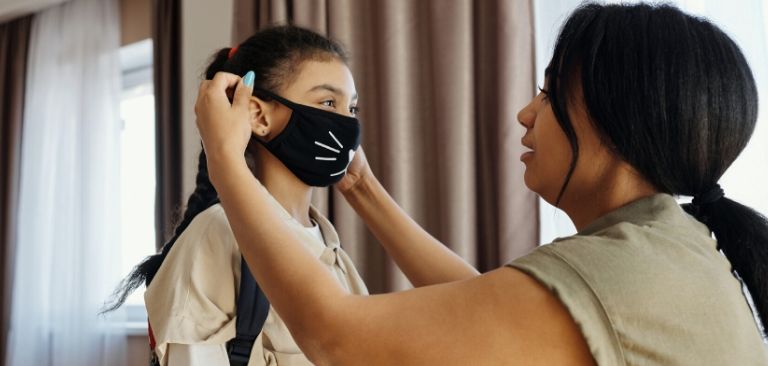Remember a few months ago when everyone suddenly realized that all the selfies we’ve been uploading to social media are actually being used to train facial recognition AI? And that this AI was being sold by tech companies to law enforcement not only in authoritarian nations like China but even in the land of the free? The tech that was deemed constitutional in the UK and proposed to be used to “determine the age” of anyone trying to access online pornography in Australia?
Yeah, good times. For a while, there was a trend of new “anti-facial recognition” headgear, masks and jewelry to obfuscate people’s faces from governments and corporations scanning them in public.
Obviously, those didn’t really take off. But you know what has taken off recently? Face masks! Those things are everywhere now. You can’t tell who’s walking down the street or determine if someone you’re talking to is being sarcastic or serious.
But aside from the supposed health benefits, there’s at least one hidden silver lining: facial recognition is dead, right? Well, for now. As is often the case in tech world, corporations and governments alike have been scrambling to get on top of this. Call it the arms race of the turn of the decade.
In March of this year, the Real World Masked Face Dataset (RWMFD) was released with over 5,000 masked selfies obtained from social media. In April, another database containing 1,200 masked selfies was released by startup Workaround. That’s less than half of the 3,000 they obtained from Instagram.
Both of these scraped sets were published to Github. Obviously, neither was obtained with user consent.
In February, Facebook humorously opined. “Scraping people’s information violates our policies.” That was right after the tech giant paid $550 million to settle a class action lawsuit for training their own facial recognition AI using its users’ selfies without their consent.
Wafaa Arbash, CEO of startup Workaround, claimed to not be making money off of this. “The goal was to help any data science or machine learning engineers who are working to fix this issue and help with public safety.”






















